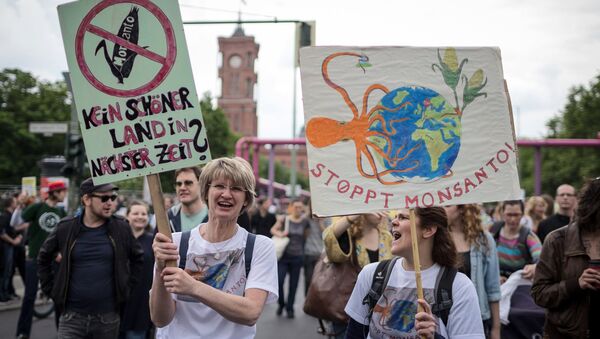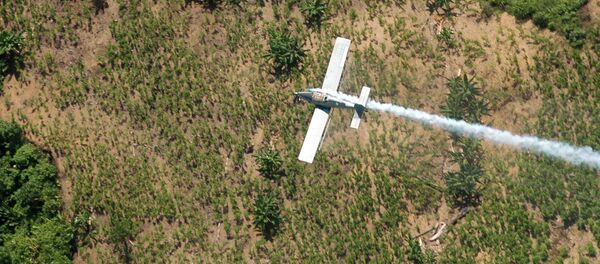The EU-Ukraine association deal was signed in June 2014 and envisages Kiev implementing reforms in various spheres to bring it in line with the EU standards. Under the deal, Ukraine has to approximate its biosafety legislation concerning GMOs with relevant EU acquis. Up to 20 EU members states, out of the total 28, have opted out of growing GMOs, some of which Monsanto is known to be using.
"We do not expect the EU association to have any direct effect for Monsanto operations in Ukraine," the representative said.
The EU-Ukraine Association Agreement establishes a political and economic association between Kiev and Brussels. It grants Ukraine expanded access to the EU single market once the country complies with all EU criteria. The deal has not come in force yet.
US agrochemical and seed producer Monsanto is not planning to build its own production facilities in Ukraine and plans to continue working with local partners to produce seeds, according to company's representative.
"Currently, we plan to continue cooperation with local Ukrainian partners who own seed production facilities," the representative said. "We currently have no factories in Ukraine."
"We provide Ukrainian farmers with high-yielding conventional breeding seeds to help them maximize their harvests while using fewer resources. We import most of our products and produce corn seeds locally in cooperation with Ukrainian seed growers and seed producers. We plan to continue this cooperation in the future," the representative said.
Monsanto is largely associated with the GMOs. Food producers and chemical companies claim there is no evidence that anyone has ever been harmed by GMOs, despite massive amounts consumed in the United States.
Activists, including many scientists, claim that GMO foods have detrimental effects on health, causing infertility and infant mortality in animals, among other effects.





